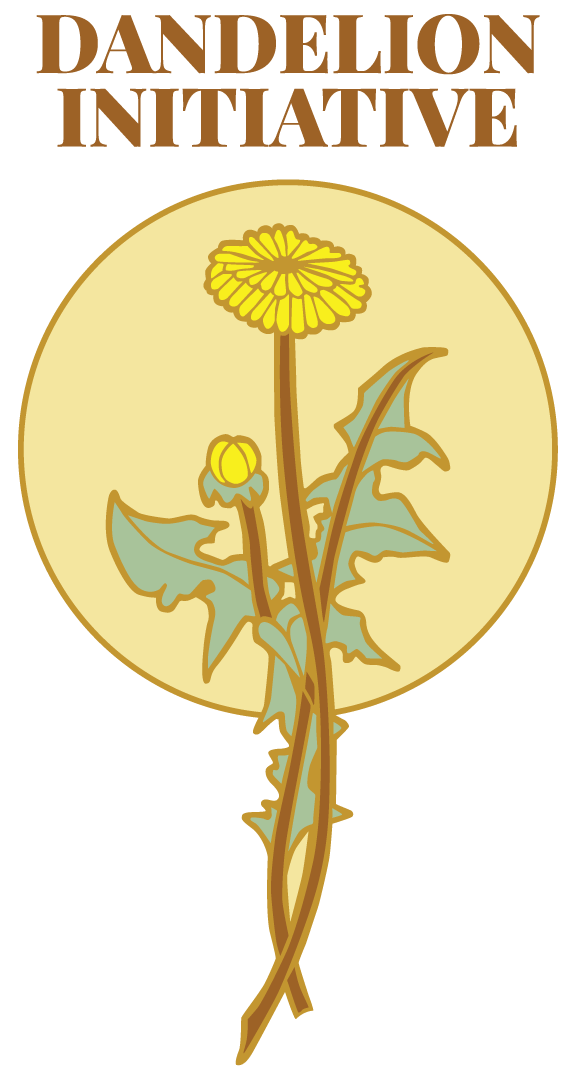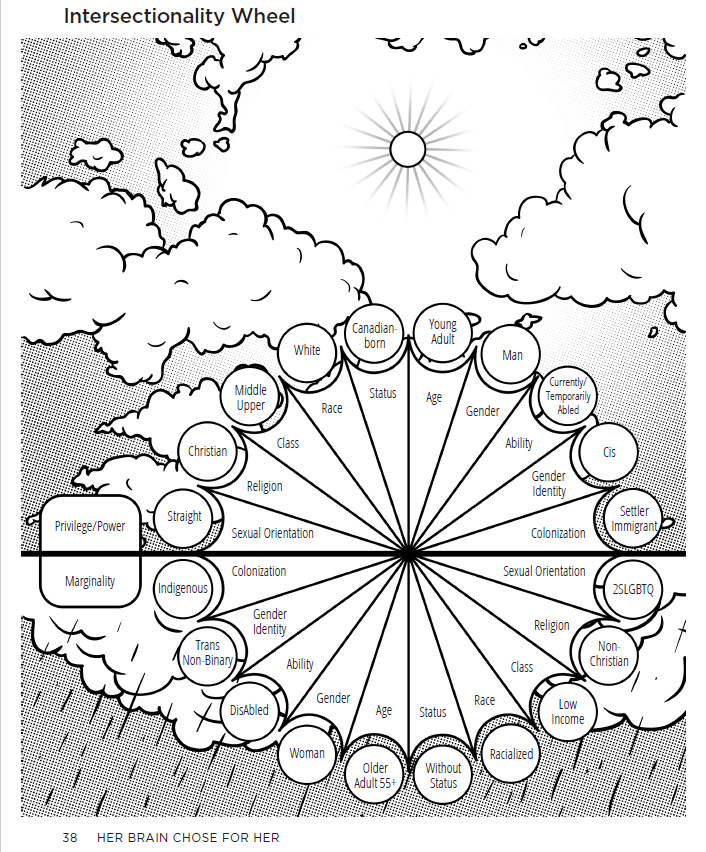Empowered Bystander Intervention: Activity 3
Privilege, Power and Gender-Equity Reflection Activity
Here we can see an interpretation of the “intersectionality wheel” from OAITH’s program “Her Brain Chose for Her.” We share this image with you and remind you that if you need a refresher on intersectionality, please visit the GBV 101 page in the portal.
Can you see where you have privilege and where you have oppressions (marginalizations)? Why is this important to recognize?
Another way to ask or reflect on your identity and the privilege it may carry is to ask yourself the following questions, no one is grading this or making this. Answer with honesty and with integrity.
Privilege is when you think something is not an issue… Because it’s not an issue for you.
“As a white cis man, who has a full-time job, who is healthy, who was raised Catholic and is straight, my life has not been easy, but it has been extremely privileged. Yes, I experienced poverty for most of my life, but I was never denied jobs because of it, I was never told to dress differently, I was never asked to spell my name, I was never asked where I was born, I was never questioned about my place in the world, that is privilege.”
How do you identify?
Is your identity one that has historically experienced more privilege/power or barriers/stigma?
Is this identity visible, hidden, or concealable?
If this identity is associated with barriers and stigma, do you experience this identity as a source of strength, stress, or both?
How much do you think about this identity? (1 = never, 5 = very often)
Does this identity impact your mood or mental health (how you think, feel, behave)? (1 = not at all, 5 = completely).
Does this identity interact with other identities, causing more or less stress?
This short activity is a great way to recognize gender-inequity
Check off the statements that apply to someone, with the more boxes ticked indicating the more gender-based privileges they are likely to have in the workplace.
I can work comfortably (or walk down a public street) without the fear of sexual harassment.
I have never felt unsafe because of my gender.
If I fail in my job or career, I can feel sure this won't be taken as a sign that people of my gender shouldn't be doing this type of work.
The decision to hire me will never be based on assumptions about whether or not I might choose to have a family sometime soon.
If I choose to have children, I'm not questioned about how having a family would hurt my ability to do my job.
If I have children and a career, no-one will think I'm selfish for not staying at home.
I can be assertive at work without being labeled "bitchy" or "bossy".
My ability to make important decisions and my capability, in general, will never be questioned depending on what time of the month it is.
I can look up to plenty of professional role models of my gender in my field.
When I ask to see "the person in charge", odds are I will face a person of my own gender.
I can be confident that day-to-day language always includes my gender. "All men are created equal," mailman, chairman, the man in the street, etc.
I make more money than my professional counterparts of the other gender.
Opportunity for Learning:
Reflection Question: what did you learn from this video?
Tip: Explore some of these short learning offerings to see if you can answer this question in your own words.
Challenge:
For white people of any gender try the following activity by Peggy McIntosh.
“I was taught to see racism only in individual acts of meanness, not in invisible systems conferring dominance on my group”
Reflection Question:
If you are an employer or a person in a position of authority or power, how are you going to challenge your privilege and power as a leader? How do you start demonstrating your capacity to check your privilege and name it when it needs to be named?


